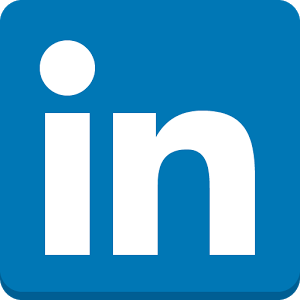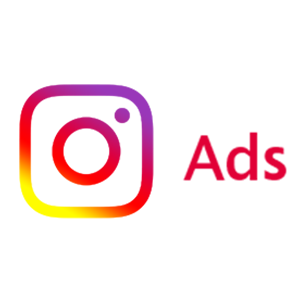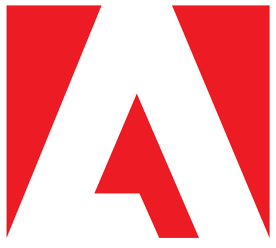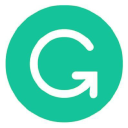On Creating An Influencer Platform As A Non-Technical Solo Founder
Note: This business is no longer running. It was started in 2018 and ended in 2023. Reason for closure: Shut down.
Hello! Who are you and what business did you start?
Hey Starter Story readers! I’m Arielle Frank, the solo non-technical founder of Clout Collective. I started my company to bring more transparency, accountability, and standardization to the wild world of influencer marketing.
Clout Collective is like a Glassdoor for content creators and influencers. Through our private site, creators anonymously review brand collaborations and report generalized compensation rates per partnership. Influencer marketing has exploded in recent years, but as the industry is in its infancy, there’s very little in the way of standardization. Every brand and agency is making up its own rules for how to work with creators, compensate them, and accurately measure their value. Further complicating the landscape for influencers is the fact that many companies rushed to create tools/platforms for brands and agencies while overlooking the needs of creators.
We’re currently pre-revenue and plan to always offer a free-tier for content creators. However, my goal is to identify and implement multiple revenue streams for the platform by the end of 2020.

What's your backstory and how did you come up with the idea?
I spent the majority of my upbringing in the SF Bay Area a few towns over from Palo Alto. It was an exciting time to live in Silicon Valley-- I distinctly remember the line of people camping out for the release of the very first iPhone as Steve Wozniak rolled up on his Segway to say hi. With an adversarial stubbornness unique to teenagers, I set my sights on the furthest thing I could think of from Silicon Valley and startup culture; working in the music industry.
I spent the first half of my twenties vying for a job in music, and the second half living out my aspirations, spearheading marketing efforts for indie and major labels. Working in music certainly delivered on my original plan to avoid innovation and technology at all costs. Eventually, the limitations of such an environment caught up with me and after two years at Sony Music, I was deeply frustrated by the company’s inflexible and outdated culture.
In an effort to feel professionally fulfilled, I was desperately seeking new challenges outside of work. Around the same time within Sony, we were starting to heavily utilize influencers to market our artists. Through this direct exposure, I was introduced to the world of influencer marketing. At the time, it was late 2015 and I was overcome with excitement for the potential of this new type of marketing. It had all the makings of the perfect storm of opportunity-- no clear best practices, few regulations, & little to no standardization.
If you’re a solo founder or have a small team, avoid becoming a jack of all trades, master of none. If I were to list out everything I needed to do for Clout Collective, the list would be long enough to span the entire country.
With my marketing expertise and relevant entertainment industry experience, I decided to double down my efforts on building something for the creator economy. I always knew I wanted to create a product to serve content creators and influencers. I noticed a bunch of companies popping up to solve problems for brands & agencies, but none of them seemed to even consider the other side of the equation, creators. My biggest fear was creating a product that didn’t solve a valuable pain point for content creators. To offset this risk, I spent about a year interviewing and interacting with influencers while still at Sony. Once I quit Sony to focus on Clout Collective full-time, I spent another 8 months interviewing influencers and workshopping a number of possible ideas.
One day, I noticed a pattern while skimming through the most popular topics/conversation threads in a Facebook group for influencers. Any time a brand approached an influencer about a potential collaboration, they would pop in the FB group and ask if anyone else had worked with them.

Like any of us on the receiving end of a job offer, they wanted to know if the company was legit, how much they typically paid, and how they treated other influencers. On a growing hunch, I threw together a post for a few FB groups asking if anyone would be interested in testing out my new platform, a Glassdoor for content creators. At the time, I only had a vague splash page and an Instagram account with less than 1K followers. I knew I was onto something when after only an hour, one of my posts had over 50 excited potential testers. Using that as demand validation, I set out to build a Clout Collective.
Take us through the process of designing, prototyping, and manufacturing your first product.
In theory, building a digital product should have been the easiest part of the process. However, as a solo founder without a technical background and little professional experience outside of marketing, I was completely out of my element. My first instinct to find a technical co-founder proved a much harder task than I anticipated-- especially since all my contacts over the years were from the music industry. Eventually, I accepted that I would have to outsource the development of Clout Collective’s MVP.
My first attempt to find a developer was a massive failure. I was basically screaming to be taken advantage of with my lack of technical knowledge and a heart full of hope. I signed an extremely unfavorable contract with a developer based in Morocco who claimed to offer “discounted” development services in exchange for equity in the company. By “discounted” I mean that it would cost only $40K to build the MVP. At the time I had no frame of reference for whether or not this was normal and justified it to myself.
Once I did my research and spoke with a few people, I realized this was the contract from hell and I needed out ASAP. Eventually, I was able to partially terminate the contract but not before I sent them about $7K. Even just typing that out pains me, but most mistakes aren’t free.
Luckily, after a lot more internet sleuthing, I found my current developer, Adeva. Working with Adeva was the opposite experience of my initial encounter in every way. At $8K, Adeva’s quote for my MVP was literally 1/5th the cost of the original developer! I decided to save money on a front-end designer for V1 by using a template and designing things where I could in Figma.
I was forced to figure out many of the details and features of the platform upfront since Adeva couldn’t give me a quote without detailed user stories. When building out the prospective features, I tried to focus on the end result and work backward from there. For example, the end goal was for a content creator to be able to read a review and know whether or not they want to collaborate with a specific brand. I used this goal to inform the questions I collected for the reviews and the best way to display this info. During this phase, I also relied heavily on my beta testers for feedback about which info would be the most useful for them.
It’s tempting to add a bunch of cool, slick features when you’re building your product, but my brilliant mentor encouraged me to focus on doing one thing extremely well. I used this advice as my north star and focused on refining the existing functionality of the platform while making it as easy to use as possible.
Describe the process of launching the business.
I was pissed when Forbes declared Kylie Jenner the “youngest self-made billionaire ever” because it was incredibly misleading. In an effort to not pull a Forbes, I want to be transparent about my financial situation while building Clout. I want to be forthcoming so other aspiring entrepreneurs reading this can set reasonable expectations for themselves.
I’m incredibly lucky to have graduated from college without student loans or debt (thanks to Canada, mom/dad, and grandma/grandpa). When I quit my job at Sony, I had about $21K in savings, which I earmarked for living expenses for 12-14 months. I borrowed another $20K against my 401K to fund the development of the platform and related expenses. I also took on a part-time, remote job that required about 20-25 hours of work a month and paid $35/hour. Unfortunately, building this platform and generating revenue has taken much longer than I was accounting for, so in the next few months, I’ll probably have to make some tough decisions about taking out a loan or going back to work.
Here’s a rough estimate of what I’d spent on Clout Collective up until this point:
- $1,500- Graphic designer for original images & collages on website
- $2,500- Data privacy lawyer for the site’s Privacy Policy and T&C
- $8,000- Development costs
- $500- Registering Clout Collective as an S Corp
Since my whole product relies on data, I had to splurge on a specialized lawyer $12,500 TOTAL
This meant that heading into Clout Collective’s beta launch, I had a budget of approximately $0 leftover for advertising, marketing, & customer acquisition. Time to get scrappy! As my developer coded the back-end, I simultaneously built out a more robust digital marketing presence for Clout Collective. Since my target customers are aesthetically driven and I was asking for sensitive information, I felt added pressure to create a polished, trustworthy brand. The first step was to replace my simplistic Squarespace landing page with a responsive, professional marketing site.
I’d recently discovered the magic of Webflow, and my web designer friends at Sidekick helped me turn my vision into reality. I knew I wanted Clout Collective to feel like a trendy lifestyle website instead of a boring SaaS platform, so I prioritized spending $1,500 on an amazing graphic designer to create original collages for the site and platform. With all the fresh branding in place, it was time to find my beta testers.

As a solo founder (or member of a small team), I strongly suggest focusing on a few acquisition channels and doing them flawlessly. When I first started, everywhere I turned there was a new article touting the importance of content marketing. I figured I’d write a few relevant, high-quality blog posts and the traffic would come pouring in… not so much. I quickly realized the input vs. return didn’t make sense for Clout Collective, and the blog posts and weren’t moving the needle for us. Instead, I focused all my effort and attention on 2 acquisition channels.
1- Facebook Groups
In case you haven’t noticed, I’m mildly obsessed with Facebook groups. They’re an underutilized treasure trove for small businesses, and Facebook only recently realized this. For Clout Collective, I joined about 15 Facebook groups for content creators/influencers. It involved a lot of trial and error as I learned the behavioral nuances of the members of each group. For example, people in a group just for YouTube creators are discussing different things and motivated by different factors than a group for Instagram influencers. Once I found a few groups with my target customer, it was easy to find more through the suggested groups’ tab. Additionally, I viewed random group member’s FB profiles to check out other groups they belonged to.
Once I had my shortlist of vetted FB groups, I focused on organically engaging with the other members as much as possible. This included helping them with their questions, offering advice, giving feedback, etc. I never mentioned Clout Collective in these posts, but I noticed views on Clout Collective’s FB page spiked whenever I engaged in the groups. Finally, after building a rapport within the groups, I wrote a dedicated post about Clout Collective calling for beta testers. Approx. 75% of my current beta testers came from these FB groups!

2- Instagram
If you want to find your customers, you have to go where they are. Instagram seemed like an obvious choice for Clout Collective. At first, I poured all my time and energy into posting useful, relevant content and growing my follower base. Unlike content marketing, I was seeing an extremely positive return for my efforts. As you can see in the Google Analytics below since I launched my new site, Instagram is the third-largest source of traffic after direct & organic. More compelling is the fact that users coming from Instagram are converting at a rate of 26.85% where conversion is defined as joining the waitlist for the beta.

More recently, I’ve expanded my efforts on Instagram by partnering with other accounts/brands in the influencer space that share a similar audience. Together, we’ve created original blog posts/guides, hosted IG Lives, and put on local events. Many of these accounts have much larger followings than I do, so I provide value in other ways like taking on a larger percentage of the project, etc. I think this is another reason why Instagram has the highest conversion rate-- because my partners lend credibility and provide more context.
Since launch, what has worked to attract and retain customers?
Clout Collective’s situation is slightly different than a “traditional” launch since we’re still fine-tuning and iterating the product. Currently, our focus is on identifying and winning over early evangelists from our customer demo to test the platform and provide feedback. However, I think many of our strategies for finding beta testers can apply to any business.
Paul Graham of Y Combinator famously suggested, “do things that don’t scale”. He was right. The road to your first 1,000 customers is an incredibly manual process. It’s not something you can automate or throw money at and call it a day. The only way you’re going to win over customers when people don’t know your company from a hole in the wall is by creating personal connections with each user. The customers I have deeper relationships with are infinitely more likely to recommend Clout Collective to a friend.
Find where your target customers are congregating online and immerse yourself in that community. For Clout Collective, that was Facebook groups for influencers specifically around monetizing, pitching, and making money. These groups were invaluable because they allowed me to understand my customers on a deep, nuanced level. I always provided value first before promoting or referencing Clout Collective. It was even more effective when I could mention Clout Collective in the relevant context of another user’s question or problem.
Since we’re still pre-revenue, I had to find creative ways to increase traffic and awareness without spending much money. I knew that my limited budget wouldn’t move the needle with paid social ads or other traditional digital marketing efforts. Instead, I decided to go back to the place where it all started...my beloved Facebook groups. I found the owners of two FB groups where I’d had the most organic success and asked if I could pay them directly for a promoted/pinned post in their group. To my surprise, both admins said yes and gave me incredibly reasonable rates. I paid $225 total for pinned posts in two different FB groups that collectively reached 41.5K influencers.
You’ll never find a better deal on advertising, especially with such a targeted audience! Although I’m not running paid social ads, I’ve still installed Google and Facebook retargeting pixels on my site so when the time comes, I’ll have a large, relevant customer pool to retarget. This is one of the most difficult aspects of running a business-- executing strategies that work for where you are now while having the bandwidth to set yourself up for future success as your circumstances evolve.
Find where your target customer is congregating online and immerse yourself in that community.
It’s also important to continuously refine your definition of your target user. Initially, I targeted content creators based on their preferred social platform and follower count. I wanted to position Clout Collective to Instagram influencers who had between 2K-100K followers and lacked formal representation like a manager/agent. My thinking was that once an influencer landed an agent, they would be removed from the details of their deals and wouldn’t have much use for the platform.
To my surprise, I learned that even larger creators with agents are still heavily involved in collaboration discussions. Just like other creators, they never forget when a brand fails to pay them or makes unreasonable demands. Speaking with creators of different sizes at various stages in their careers helped me refine my target audience. I transitioned to targeting potential users based on their psychographics instead of their metrics. How involved are they with their brand? Is their goal to do this long term or is this a fun hobby? Things like this have proved much better fit predictors for Clout Collective.
How are you doing today and what does the future look like?
Much of what I share will have to be theoretical since Clout Collective’s still pre-revenue & in beta. However, I’m extremely excited and optimistic about the future of my business and the industry as a whole! After we iterate on feedback from the current set of beta testers, we’ll launch one more closed, private beta to a larger group of content creators before officially launching to the public in Summer 2020. Leading up to the public launch, I’ll continuously focus on gathering as many reviews and compensation rates as possible. Building a business that’s almost entirely reliant on user-generated input is admittedly risky, so I’ll continue to look for ways to offset this risk while incentivizing user submissions. December 2020 is my self-imposed deadline for Clout Collective to generate positive net income.
I’m looking forward to building out a suite of tools for content creators on top of the review platform in the next few years. I want Clout Collective to be a complete ecosystem for creators and the first site they visit every day. I’d like the platform to eventually include payment processing for creators, access to dedicated accountants & lawyers, and a supportive community component. If the majority of the US workforce becomes freelancer-based by 2027 as predicted, it will open up a whole world of additional possibilities for Clout Collective.
Through starting the business, have you learned anything particularly helpful or advantageous?
The most surprising thing I’ve learned is that my mental strategy impacts my success or failure just as much as my business strategy does. If you’re the type of person who’s even considering starting your own business, it's safe to assume that you’re motivated, proactive, & intelligent. Congrats, but that’s the easy part.
When I told people I was starting my own business, I often heard a foreboding variation of, “it’s going to be so much harder than you think.” I knew it was going to be the hardest thing I’d ever done, so I never quite grasped what people were trying to tell me. Looking back now, I suspect they were referring to the mental and emotional challenges; however, I wish they had just come right out and said it! Starting a business is the ultimate practice in delayed gratification and that can really take its toll. The effects can be further compounded if you’ve come from a corporate environment where your days were neatly confined to systematically checking off items on your to-do list. Suddenly you’re pouring yourself into work that can take months or even years before you see any sort of tangible benefit or profit. As hard as it can be, you have to acclimate yourself to feeling comfortable without consistent feedback. This lesson has had wide-reaching positive effects on my life far beyond the scope of Clout Collective.

If you’re a solo founder or have a small team, avoid becoming a jack of all trades, master of none. If I were to list out everything I needed to do for Clout Collective, the list would be long enough to span the entire country. It’s taken me a long time to let go of that nagging voice inside my head reminding me of all the things I could be doing. Instead, based on my goals for the year ahead, I narrowed down my focus to just two things: customer development & product development. Everything I do on a daily, monthly, and quarterly basis can be directly linked to these two areas of focus. I’ve even written these out on a post-it note and hung it up above my desk. Whenever I get overwhelmed, lost, or just discouraged, I look up at the post-it note to gently guide me back on the right path.
What platform/tools do you use for your business?
I’m a sucker for platforms & tools, but keep it lean in the beginning. What are the things you absolutely need in order to advance your business, attract customers, take the next step, meet your goals, etc.? Also, most tools/platforms offer special startup pricing that saves you a ton of cash, so look out for that because they don’t always advertise it prominently.
- Azlo for business banking- Free, digital banking just for entrepreneurs and startups. Community-focused!
- GoSquared for analytics- Their product offers detailed analytics, live chat, automation, and a CRM in one, perfect package. They also have a wonderful team that really cares about their customers and goes the extra mile for them. Special pricing package for early-stage startups
- Intercom for Knowledge Base & Product Tours- Early-stage startups get the Pro plan for $49/month!
- Mixmax for added email functionality- Track, schedule, automate, engage, & integrate all within your existing email platform
- Typeform for Surveys & Data Collection- Before my website was built, I collected all brand feedback and compensation rates through Typeform
- Webflow for marketing site- Obsessed doesn’t even begin to describe how I feel about Webflow. I tried every other site builder you can think of (Wix, SquareSpace, WordPress) before arriving at Webflow. It gives you insanely advanced features and styling typically only possible through custom coded sites. I also saved over $5K in developer fees by using Webflow’s CMS
What have been the most influential books, podcasts, or other resources?
Podcasts
General:
- Startup Podcast- Especially the first few seasons when you’re watching them build a startup in real-time
- How I Built This- I like to pick and choose which companies to listen to
- Anything produced by Harvard Business Review
Influencer Specific:
Books
- Playing Big (Tara Mohr)- Entrepreneur or not, this book is for everyone. Mohr teaches women how to play bigger in their own life, whatever that looks like to them.
- Hooked (Nir Eyal)
- The Entrepreneur’s Guide to Keeping Your Sh*t Together (Sherry Walling)
- Ask (Ryan Levesque)
ETC.
Blogs/Newsletters:
- Failory- Failure stories from other entrepreneurs
- Growth.Design- They create amazing case studies around product design, UX, & UI all formatted like a fun, interactive graphic novel
- Aron Levin’s LinkedIn posts- One of the smartest marketers/brand builders I’ve ever come across
- Influence Weekly- By far the most comprehensive weekly roundup of influencer industry news and analysis
I’m constantly taking inspiration and lessons outside of traditional “business” or “marketing” resources. I think it’s really important to diversify the avenues that inspire you.
Advice for other entrepreneurs who want to get started or are just starting out?
DO IT. Whatever it is you’re mulling over in your head, overthinking, running by your mom, best friend, co-worker, dog, etc. just go out there and take the first step. If you’re waiting for that moment when you feel ready, spoiler alert... it’s never coming. During one painful period of indecision, a friend asked me, “looking back on your life at 80, how much will you regret never pursuing Clout Collective?” I wish I could say I had an instant moment of higher consciousness, but I didn’t. However, I thought back on this question more times than I can count and the fear of never trying always outweighed whatever fears I was facing at that moment.

IGNORE THE STATUS QUO. We’re often pounded over the head with Silicon Valley success stories that make it seem like there’s only one path to prosperity. Don’t have a co-founder? Don’t bother. Don’t have a technical background? You’ll never make it. Subconsciously, we all internalize these messages to an extent. However, I can’t tell you how far from the truth that actually is. Look no further than some of the other StarterStories you’ve read on this site. There are plenty of highly successful, profit-positive companies that aren’t household names. No one knows your strengths, weaknesses, & potential better than yourself, so rely on those to guide your decisions more than anything else.
EXPERIENCE > EDUCATION. There will always be more books to read, more podcasts to listen to, more experts to consult, etc. Yet nothing can replace what you learn through hands-on experience. Throughout this process, on multiple occasions, I’ve had a successful endeavor that should have been a massive failure according to proven “methodologies”. Even the very premise of my company defies traditional thinking-- people willing to share how much they were paid with a company they’ve never heard of. If I’d listened to the consensus of “experts” I would have never learned that people will, in fact, share this info with a perfect stranger. Think of the opportunity cost of always playing by the rules.
Are you looking to hire for certain positions right now?
We aren’t looking to hire anyone right now and probably won’t have the means to bring on a full-time employee for at least another year.
However, if you’re excited and interested in the influencer marketing space, please shoot me an email at arielle@thecloutco.com. I’d still love to connect with you! You never know when an opportunity to work together might present itself.
Where can we go to learn more?
If you have any questions or comments, drop a comment below!

Download the report and join our email newsletter packed with business ideas and money-making opportunities, backed by real-life case studies.

Download the report and join our email newsletter packed with business ideas and money-making opportunities, backed by real-life case studies.

Download the report and join our email newsletter packed with business ideas and money-making opportunities, backed by real-life case studies.

Download the report and join our email newsletter packed with business ideas and money-making opportunities, backed by real-life case studies.

Download the report and join our email newsletter packed with business ideas and money-making opportunities, backed by real-life case studies.

Download the report and join our email newsletter packed with business ideas and money-making opportunities, backed by real-life case studies.

Download the report and join our email newsletter packed with business ideas and money-making opportunities, backed by real-life case studies.

Download the report and join our email newsletter packed with business ideas and money-making opportunities, backed by real-life case studies.






































